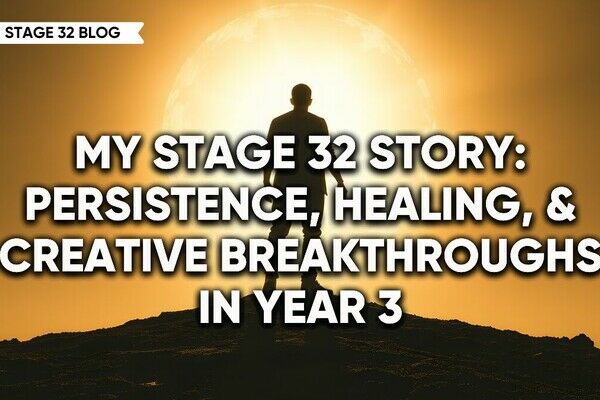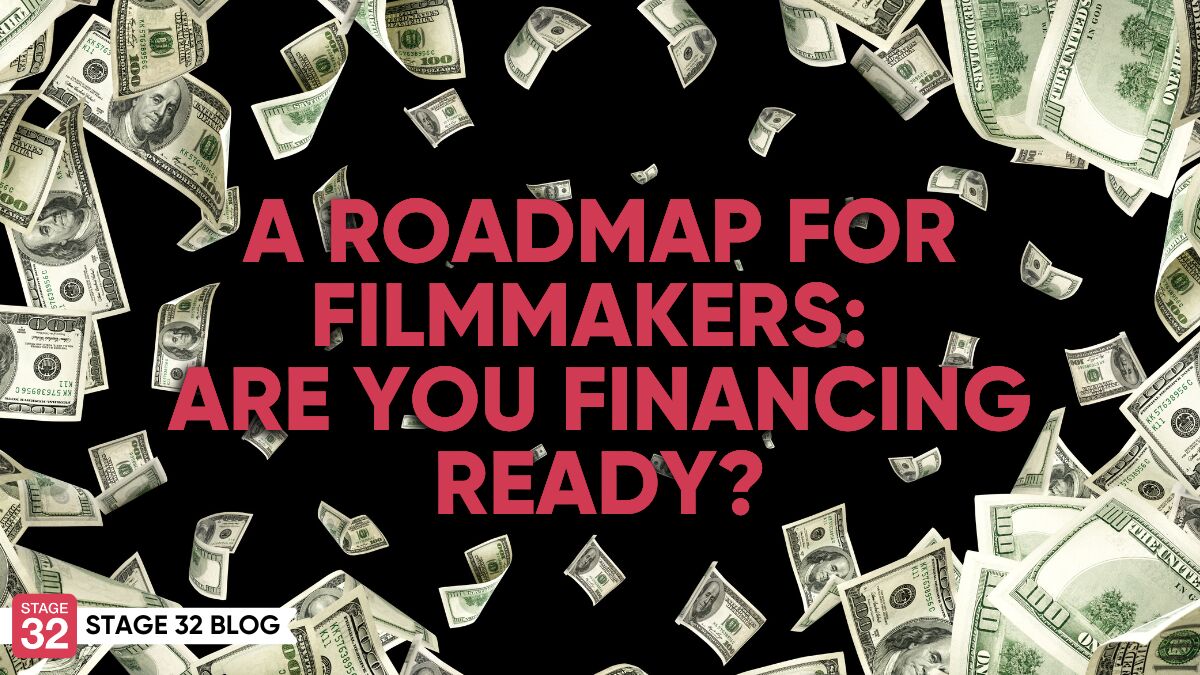3 [Frightening] Writing Fails to Avoid in a Horror Script
Writing a script is challenging in many ways. After you overcome the stress of facing the first draft review and all the reviews after that and then you see the job done it is, without a doubt, a very satisfying achievement.
During the process, we can make mistakes (yes, even writers make mistakes) with the way we tell the story. This is why we must keep reading and or talking about script techniques. Today I want to talk specifically about three things we must not do when we are writing a horror script.
Not long ago, I read a comment here on Stage 32 (I wish I could remember the name of the person who wrote it) talking about horror scripts. The comment said that screenwriters must stop using the line, "This looks like a bad horror movie."
Agree!
It sounds terrible when one of your characters says these words. It is like you sell hamburgers and at the same time, you talk against meat lovers. But this was a comment to start with today’s topic.
Some people think it is difficult to create a scene or a bunch of scenes with the ingredients to scare people. It's not that difficult. You just have to feel it, like when you write a romantic scene or a sad one. If you're a fan of horror genre you know what it feels when a good scene is on its way.
The reason a movie like “The Conjuring” (Warner, 2013) was so successful, is that it goes to the basics of horror, nothing much pretentious and the fear starts to evolve around you without you noticing it.
From my personal point of view, there are three things that you might want to avoid when developing a horror script:
1) (Over) Teasing the Audience
On the first pages of the script of course you will start to show the horror gradually. First, there will be strange sounds or not-so-clear images. But spending the whole movie like this is a mistake.
For example, some of the “Paranormal Activity” (Paramount, 2007-2015) saga movies do this. The night arrives, we see the people sleeping, one of them begins to act strangely and… that’s it, it is day again. And it is like this the whole movie! So by the time the final scene arrives, you’re not scared at all. “The Conjuring” is a very good example of how to show horror gradually. It grows until you feel trapped in the story.
 “Paranormal Activity” (2007)
“Paranormal Activity” (2007)
 Patrick Wilson and Vera Farmiga in “The Conjuring” (2013)
Patrick Wilson and Vera Farmiga in “The Conjuring” (2013)
2) Not Justifying the Situations
Sometimes with the idea of creating surprising facts in a scary scene, writers “stretch” the story. Examples of this can be when they give supernatural abilities to a character that didn’t have them before, or invent something about the demon or the ghost in the story that wasn’t there at the beginning.
Even with supernatural stories, you must maintain the line of what you are telling.
A good example of this is “The Grudge” (Sony Pictures, 2004). We see Sarah Michelle Gellar experiencing all kinds of horrid stuff in a house in Japan related to a legend that says if a person dies with a lot of anger, that energy will remain on that place and will affect whoever lives there. She is a normal girl who is struggling to adapt to her new home. Suddenly her character is able to see everything that happened in that house to a previous family, like she, in a matter of seconds, turns into a psychic.
There are other ways to surprise people, to give the last turn on the story, especially in horror movies.
 The Grudge (2004)
The Grudge (2004)
3) Just Being Scary
Let’s say you're writing about a terrible demon inside a house or a big creature in the woods. Sounds great, but don’t stay there. A horror movie must be more than an evil character. If a creature is evil, it might get people scared the first three times it appears but after that the effect will disappear.
Don’t forget that the main element in horror movies is people’s emotions. Add anguish to your characters. Make them suffer because evil torments them. Of course, give them hope that everything will be okay if they do this or that, but don’t forget emotions.
I can’t imagine “The Exorcist” (Warner, 1973), with Regan’s story only, without her mother’s anguish. All that these two characters face together is the “secret” ingredient of the huge success of the movie. Of course, we need to add the anguish of Father Karras after losing his mother and having a crisis of faith, too.
 The Exorcist (1973)
The Exorcist (1973)
So, you are allowed to create the scariest creature ever - but don’t forget about emotions.
As a last advice, be careful not to go too much on the drama side and let the horror be forgotten.
Let's go with another classic horror film: “Poltergeist” (MGM, 1982). In the film we see a family tormented by supernatural forces in their own home. The little girl is the goal of these energies and the center of the tension. The energies take her with them (anguish through the parents to get her back). One of the most important things in the script is the couple’s relationship. We see them as a strong couple. They are not divorced, nor are they unfaithful, The script even has romantic moments between them. But this doesn’t affect the scary parts of the movie. “Poltergeist” is a memorable horror film of the 80s.
 Poltergeist (1982)
Poltergeist (1982)
I hope you find these "frightening" but useful recommendations helpful. Although you should take your own wheel while writing a script, it is true that sometimes it’s necessary to read or listen to advice to make it better. Keep writing!
Let's hear your thoughts in the comments below!
Got an idea for a post? Or have you collaborated with Stage 32 members to create a project? We'd love to hear about it. Email Ashley at blog@stage32.com and let's get your post published!
Please help support your fellow Stage 32ers by sharing this on social. Check out the social media buttons at the top to share on Instagram @stage32 Twitter @stage32 Facebook @stage32 and LinkedIn @stage-32
| Coffee & Content: The Secret To Opportunity Is Building Relationships |
| A Roadmap for Filmmakers: Are You Financing Ready? |
Search Stage 32 Blog
There are now 4040 blog posts for you to enjoy. Search them all by tags below.
Acting, Advice, Cinematography, Coffee & Content, Composing, Contests, Distribution, Featured, Filmmaking, Financing, Inspirational, Networking, Producing, Screenwriting, Success Stories, Tips, Trending,Relevant Tags
Recommended Articles

How Modern Franchises Became Our New Religion

Coffee & Content: Why Your Next Step Matters More Than the Perfect Step

My Stage 32 Story: Persistence, Healing, & Creative Breakthroughs in Year 3

Find Your Footing on Stage 32: Join Our December Community Open House

A Practical Guide for Actors: Tips & Advice Every Performer Should Know

Happy Thanksgiving From Stage 32: We Are Thankful For YOU

Making Our First No-Budget Feature: The Pure Vortex Production Chaos (Part 2)

Insider Intel: 2026 Predictions

Insider Intel: 2025- Your Year of Breakthroughs (+ What's Coming in 2026)






